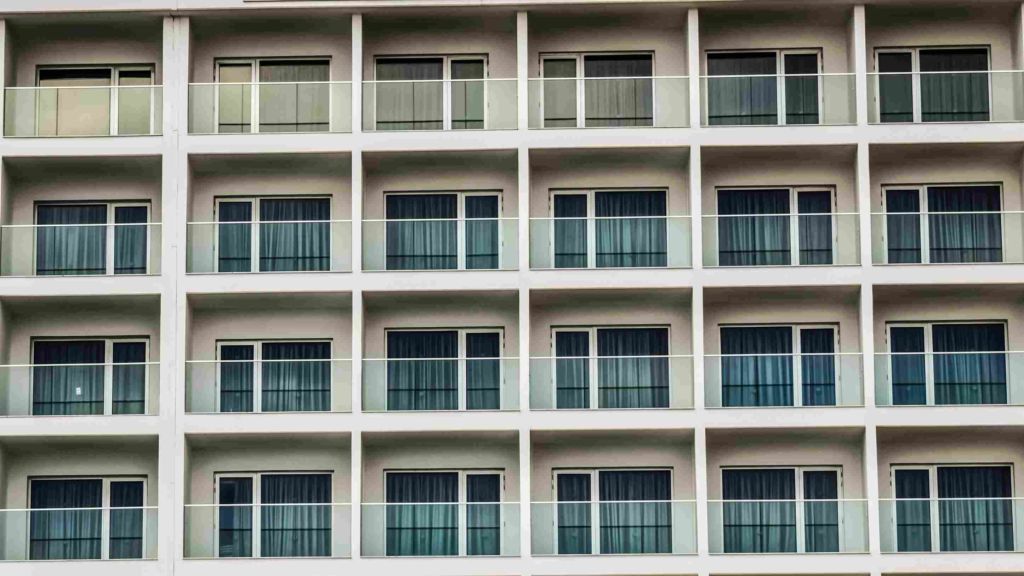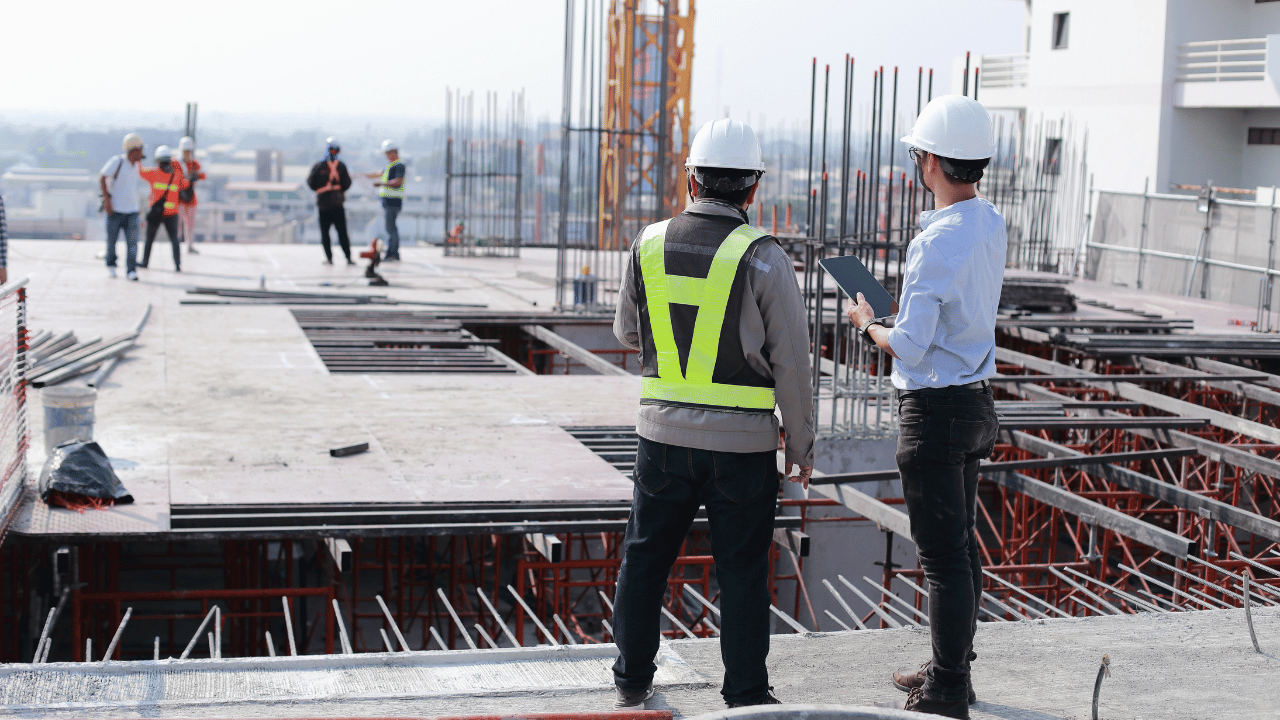
Florida Milestone Inspection Law: All That You Need To Know About The New Changes
John Souffront

You may have heard about the new Florida milestone inspection law,, and you’re sure to wonder how it might affect your building.
To begin with, the structure inspections rules for condominiums and commercial buildings are changing across Florida, and for good. You see, the new scheme has changed the methods and timeline for structural inspection in these properties, enhancing occupants’ safety.
We have all witnessed the tragic Surfside condo collapse and favored stronger structural safety laws. And exactly a year after the tragedy, the Florida Legislature passed what is called Senate Bill 4D.
And here’s the catch.
Since Governor Ron DeSantis has already signed the bill, the new Florida milestone inspection law, it is in force. So, if you’re a residential/commercial building owner or a member of condominium/cooperative associations, these laws do apply to you.
The new rules for a structural engineer inspection can create doubts and lead to questions in your mind. That’s precisely why we have explained in detail each of the changes to milestone inspections so that you can prepare your building well in advance. So let’s have a look at them.
#1. What is the Florida milestone inspection law?
A milestone structural inspection is required for every residential and commercial building in Florida that is three stories or higher.
If you own any such structure or are a member of the building association, you’re legally required to conduct timely inspections. And for that purpose, the laws need you to hire a structural engineer licensed in the state of Florida.
The engineer/s will visually assess all areas of your building and analyze its structural components for safety. And once the inspection is complete, they’ll provide you with a structural assessment report detailing their findings, opinions, and recommendations.
It is possible that your building has structural problems, which will be detailed in the report, along with ways you can fix them.
In fact, the structural building inspector can even refer construction contractors to carry out the impending repairs on your property.
There you have it, Florida milestone inspection law simplified.
#2. What exactly are the new changes to milestone inspections?
Just as the proposed changes to 40 year structural recertification, the new milestone inspection rules change the timeline of your building’s structural evaluation.
Here are the new milestone inspection Florida timelines for various buildings in the state:
For all buildings three stories or higher
You should get a milestone inspection when your multistoried building with three or more floors turns 30 years old.
By what time should the inspection be completed, you may ask?
As per the new laws, it is mandatory that your building/house structural inspection is completed by December 31st of your property’s 30th year.
Further, you’ll need to conduct a structural engineer inspection every ten years after the initial 30th year inspection. That means if you get a milestone inspection in 2025, you’re required to get another inspection in 2035, followed by one in 2045, and so on.
Florida milestone inspection law for buildings near the coastline
If your building or condominium is near the sea shore, the milestone structural inspection rules are slightly different for you.
So what’s the difference in the inspection scheme?
The rules say that if your structure is built within three miles of the coastline, the initial milestone inspection shall be conducted when the building turns 25. Meaning, you’re required to get a structural inspection by December 31st of the 25th year instead of 30th year.
However, the ten-year Florida milestone inspection law is the same for you as the non-coastal buildings. So you’ve got to get similar building structure inspections done in the 35th, 45th, 55th year, and so forth.
But why exactly is the rule different for coastal buildings?
You see, the structures along the seashore are exposed to an intense coastal climate and are prone to damage. In fact, as hurricanes become more frequent and intense, it’s the coastal buildings that take the toll.
So it is necessary to ensure that these buildings have a sound structure and that they are safe for inhabitants.
For buildings with occupancy certificates dating July 1st, 1992, or before
If the certificate of occupancy for your building was issued on July 1st, 1992, or before that, you’ve till December 31st, 2024, to get milestone structural inspections.
It is the date on which the certificate of occupancy was issued that determines the exact age of your building. And if the occupancy certificate is unavailable, the date of occupancy in any local official record will decide your building’s age.
#3. How does the Florida milestone inspection law work?
The local enforcement agency will send you a notice of inspection as the structural inspection timeline for your building nears. And as a building owner or condominium/cooperative association member, you should ensure at least the first phase of the two-phased structural inspection is completed within 180 days of receiving the notice.
And if you’re wondering what the two-phase inspection is all about, here’s what it includes:
Phase one of the milestone inspection
The first phase is all about a visual inspection of your property by the structural engineer. Herein, the inspector assesses both the habitable and uninhabitable areas of your building.
The very purpose of the first phase in Florida milestone inspection law is to examine the qualitative aspect of the structure. So the engineer tries to find whether or not the structure is sound and safe for the building occupants.
Read: Threshold Building Inspection Guide: Here’s What You Need to Know
Phase two of the milestone inspection
The second phase of a structural engineer inspection will only be conducted if the inspector/s finds signs of major damage during phase one.
Also, the phase two inspection can even involve destructive testing, meaning the inspectors may tear down part of the structure.
They do so to have a complete understanding of the extent to which your building’s structure is damaged.
However, you can rest easy as the wear and tear is the least disruptive and can be easily repaired.
#4. What happens after an inspection under the Florida milestone inspection law?
Once both the phases of milestone inspections are concluded, the engineer will prepare a post-inspection report. The details of the inspection and its findings are documented in this milestone inspection report, along with a summary of the same.
Next up, the engineer will provide a sealed copy of the inspection report to the building owner, the condominium or cooperative association, and the local building safety official.
Since the report includes detailed suggestions on structural repairs, you can follow them to carry out the necessary fixes.
#5. What are your post-inspection responsibilities?
As a member of the building association, it is your responsibility to provide a copy of the milestone inspection report to every condominium or cooperative unit owner.
Also, you need to put a copy of the milestone report summary at a noticeable spot on the property. The idea is that each occupant of the property should be aware of the building’s structural conditions.
The new Florida milestone inspection law continues the previous penal provisions of not complying with the report’s recommendations. That means the local building officials can even penalize you if you don’t carry out timely structural restorations as suggested by the Florida milestone inspection report.
So it’s good that you get the required inspections right on time.
#6. What is a structural integrity reserve study?
A structural integrity reserve study is among the newest laws aimed at strengthening building safety standards. Also referred to as the SIRS and the Florida Senate Bill 4-D, these additional Florida condo milestone inspections safety regulations were passed by the Florida Legislature in May 2022.
So why does the SIRS matter?
You see, the SIRS regulation also came in response to the Surfside condo collapse and is meant to be used along with the new milestone structural inspection laws.
In fact, these two rules together constitute one of the strongest condominium safety requirements ever adopted in Florida’s history. So much, so that special sessions of the Florida Legislature were called to bring them about.
The basics of reserve studies
Coming to the application of the SIRS regulations, they require condominium associations and property owners to conduct a structural integrity reserve study for any building three storied or higher.
Herein, if your building is built on a condominium property and has three stories or more, you’ll need to get a reserve study every 10 years.
Also, the deadline for condos to complete their initial SIRS under the new law is December 31, 2024. Meaning, your condo association is legally required to conduct the first structural integrity reserve study before the end of 2024.
Not to mention, a failure to get a timely study will be considered a violation of legal duties by the condominium association or board.
#7. How do structural integrity reserve studies work?
At its very basic, a reserve study examines and estimates the reserve funds that a condominium association will need for any future maintenance.
And that includes a visual inspection to study major repairs and restorations which the association needs to undertake in the common areas of the condo.
As per the reserve study regulation, the visual inspection can only be carried out by an engineer or architect licensed in Florida.
Talking about the purpose of the inspection, it includes the following:
- Identification of all the common areas in a condo building.
- An approximation of the remaining lifespan or usability of the areas being inspected, along with an estimate of repair and maintenance costs for the same.
- Recommendation on the reserve amount that the condo association needs to set aside for upcoming repairs.
#8. What does a structural integrity reserve study include?
A SIRS involves everything that has to do with the structural integrity and overall safety of a condo, including:
- The building’s foundation, roof, floors, and windows.
- The fire protection systems installed in the building and also the fireproofing measures in place.
- The exterior wall paints and the waterproofing systems.
- Electrical wirings and plumbing.
- The integrity of primary structural components.
- Any other repair or maintenance requirement that has a negative impact on the condo’s structure and has a cost exceeding $10,000
#9. Is a SIRS worthwhile?
Yes, it sure is.
In fact, a structural integrity reserve study is as important as the milestone structural inspection itself. That’s because it makes it nearly impossible for condo associations to ignore their legal obligation to maintain the building and ensure its safety.
Here are some examples of how the SIRS can prevent another Surfside condo-like tragedy:
First, before the developers can turn over the control of the condo association to owners of individual units, they need to complete the study.
Second, starting December 31, 2024, condo associations will no longer be able to use reserve funds meant for structural upkeep for any other purpose.
Wrapping it up the milestone inspection Florida statute
As you can see, the new Florida milestone inspection law is a prerequisite for your building’s safety and longevity. And as the building owner or association member, the onus is on you to get the inspections done timely.
You see, structure inspections can be tricky at times and can throw up challenges of their own. For instance, the post-inspection report may signal a deteriorating structure, something you’ll need to fix sooner rather than later.
At Souffront Engineering and Construction, we are a team of structural inspections and repairs. So, no matter what kind of building or condominium you have, you can trust us for a full-proof inspection and post-inspection report.
Read: Why Garage floor resurfacing is best option for you?
John Souffront
John Souffront is a seasoned leader in the construction and engineering industry, with over a decade of experience at the helm of Souffront Construction & Engineering. Known for his unwavering commitment to excellence and innovation, John has propelled his firm to the forefront of the field, delivering cutting-edge solutions for complex projects around the country.
Build Your Project
Ensure safety and compliance on your construction site with our experienced team. Call us today.
Contact Us




